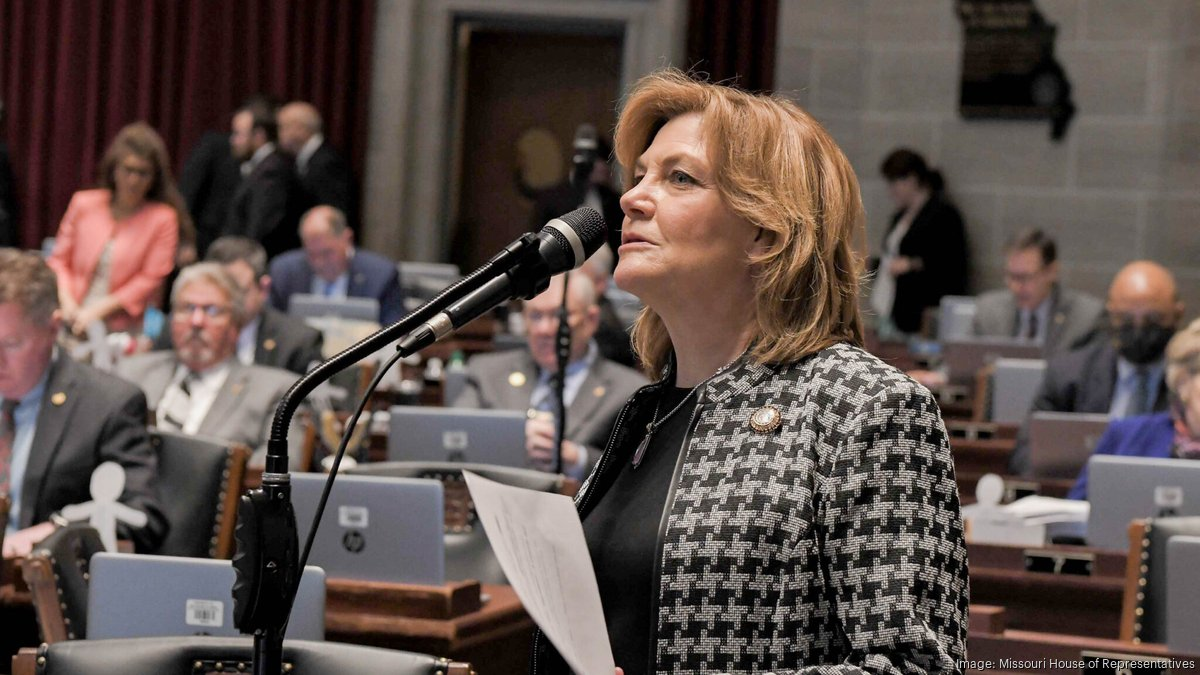For the third year in a row, a package of tax credits designed to increase access to affordable child care and stabilize the industry is a top priority for state Rep. Brenda Shields.
The legislation has been blocked in the state Senate for the last two years by members of the Freedom Caucus despite support from Gov. Mike Parson and the Missouri Chamber of Commerce. Key opponents, however, are no longer members of the Senate, and the staff of Gov.-elect Mike Kehoe wants to make child care a priority, Shields said, giving her hopes of finally passing the package.
“I’m always an optimistic person,” said Shields, a St. Joseph Republican, “and I think that we’ll be able to convince people, both in the House and the Senate, that child care and my solutions for parents is how we grow Missouri’s economy.”
Shields’ bill would allow tax credits for contributions that support child care programs, spending by businesses to create child care programs for their employees and investment in expansion by existing or new providers.
An investigation of child care spending by The Independent and MuckRock in 2023 found that almost half of Missouri’s children under age five, or about 202,000 children, live in child care deserts, with one or fewer child care openings for every three children.
“The crisis in child care hasn’t gotten any better,” Shields said. “In fact, it’s gotten worse.”
The bill was one of almost 300 statutory changes and 15 constitutional amendments proposed in the Missouri House on the first day to file bills for the 2025 legislative session. The Missouri Senate has yet to post any individual bills but the chamber website reported 455 statutory changes and 47 proposed constitutional amendments have been received.
Many of the bills posted Monday are, like Shields’ bill on child care needs, attempts to revive bills that have died in past sessions. Some examples include:
- Increasing the income limits for the refundable property tax credit known as the “circuit breaker” available to people over 65 and people with disabilities. Filed by state Rep. Mike McGirl, a Republican from Potosi, for the second year, the maximum income allowed for people who rent to claim the credit would increase by $5,000 to $32,500 and the maximum for homeowners would increase by $7,500 to $40,000.
- Allowing utility companies to include construction costs for new electric generating plants to be included in rates before the plants are finished. One bill, from state Rep. Willard Haley, an Eldon Republican, would allow the extra charges for a new nuclear power plant, while another, from state Rep. Michael O’Donnell, a Republican from Oakville, would grant it for new natural gas generating plants.
- A bill to double the boarding fee paid by casinos for each patron who enters the gambling floor at the state’s 13 casinos. Currently $2 per person, the fee is split between the Missouri Gaming Commission and host communities. A bill from state Rep. Dave Griffith, a Jefferson City Republican, would dedicate all the new revenue to the Missouri Veterans Commission for operation of nursing homes and other programs.
The 2025 legislative session begins Jan. 8, and the inauguration of new officeholders takes place Jan. 13. Republicans are firmly in control of state government, holding two-thirds of the seats in both chambers as well as all statewide offices.
Democrats hoping to pass legislation must find allies in the GOP. State Rep. David Tyson Smith, a Columbia Democrat, said he thinks a bill he filed to repeal a provision in last year’s major education bill is one that could gain support.
State Senate President Pro Tem Caleb Rowden, a term-limited Republican from Columbia, inserted a provision authorizing a charter school in Boone County. It was opposed by local school boards but made it to the final bill.
Smith has filed two bills, one to repeal the provision and the other to subject establishing a charter school in Boone County to a vote.
“The voters in my district don’t want this, so I’m okay with either one of those,” Smith said. “Obviously, this is a straight up repeal, but if we can take it to the voters, that’s okay.”
Rowden’s departure means the leverage over Republicans who voted for the bill but didn’t like the provision is gone, Smith said.
“I don’t know that you’re gonna have anyone who’s just adamant about keeping charter schools in Boone County,” he said.
Another bill from the Democratic side to revive legislation that failed in past years would add new information to political advertising. Filed by state Rep. Doug Clemens of St. Ann, the bill would require political committees to identify their top three donors along with the committee name and treasurer.
In Missouri, political committees can choose any name, often unrelated to the interest the funds represent. The bill would bring a little transparency to politics, Clemens said.
“It’s a start, and it is at least waking people up to who gives a lot of money,” Clemens said.
The legislation will be difficult to move, Clemens said, but he said something needs to be done to control the influence of money.
“This was,” he said, “in my mind at least, low hanging fruit to approach a problem realistically.”
This report originally appeared on Missouri Independent and is republished here under Creative Commons license CC BY-NC-ND 4.0.



